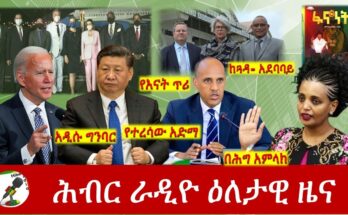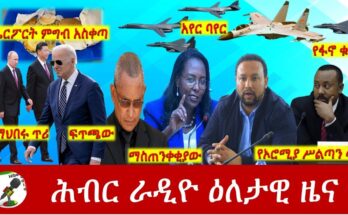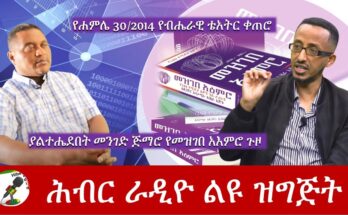Washington, D.C.– U.S. Senator Marco Rubio (R-FL), chairman of the Senate Foreign Relations Committee’s Subcommittee on Western Hemisphere, Transnational Crime, Civilian Security, Democracy, Human Rights, and Global Women’s Issues, today urged President Obama to prioritize human rights and freedom of the press during the president’s upcoming visit to Ethiopia. “Although the United States and Ethiopia share an interest in fighting terrorism and securing stability through the region, it is essential that the U.S. does not turn a blind eye to Ethiopia’s human rights abuses,” wrote Rubio. “By shutting down avenues to express dissent through the political process, civil society, or media, Ethiopia’s government may fuel further instability in the country. “I ask that during your meeting with Ethiopian officials, as well as in any public remarks, that you strongly condemn the arrest of political prisoners and encourage the government to respect human rights and the freedom of assembly,” Rubio continued. “It is important that the United States continues to promote democracy and freedom for everyone, including the people of Ethiopia.” A PDF of the letter is available here, and the full text of the letter is below:
July 22, 2015 President Barack Obama
The White House
1600 Pennsylvania Avenue NW Washington, DC 20500
Dear Mr. President, As you prepare for your upcoming visit to Ethiopia, I am writing to highlight my concerns regarding ongoing human rights abuses by the Ethiopian government against its own people. I am concerned that unless you make these issues a priority during your trip, your visit to Ethiopia could grant legitimacy to a government that violates democratic principles and basic human rights. The 2014 State Department Human Rights Report recognizes that in Ethiopia, “The most significant human rights problems included restrictions on freedom of expression, including continued restrictions on print media and on the Internet, and restrictions on freedom of association, including through arrests; politically motivated trials; and harassment and intimidation of opposition members and journalists.” The Committee to Protect Journalists’ 2014 Report ranks Ethiopia among the top ten jailers of journalists in the world. The ruling Ethiopian People’s Revolutionary Democratic Front has used repressive legislation, such as the Anti-Terrorism Proclamation Act, to silence journalists and media, as in the case of respected journalist Eskinder Nega. I am especially concerned that since their expulsion in 2005, the National Democratic Institute, International Republican Institute, and International Foundation for Electoral Systems have been unable to return to Ethiopia. Since Ethiopia’s 2010 election, opposition members have faced politically motivated arrests, imprisonment, and torture. The Ethiopian government uses the Charities and Societies Act of 2009 to severely restrict the activities of independent civil society organizations, leaving the Ethiopian people without any means to raise concerns with how their government operates. Based on these facts, I was very disappointed by the comments Undersecretary of State for Political Affairs Wendy Sherman made on April 16th before the election that, “Ethiopia is a democracy that is moving forward in an election that we expect to be free, fair and credible and open and inclusive in ways that Ethiopia has moved forward in strengthening its democracy…every time there is an election it gets better and better.” However, the reality is Ethiopia has been moving towards an authoritarian one-party rule with the Ethiopian People’s Revolutionary Democratic Front in power for the last 23 years. Despite Undersecretary Sherman’s predictions, Ethiopia’s 2015 elections were not deemed “free, fair and credible” because no Western international observers were allowed to monitor the elections. Although the United States and Ethiopia share an interest in fighting terrorism and securing stability through the region, it is essential that the U.S. does not turn a blind eye to Ethiopia’s human rights abuses. By shutting down avenues to express dissent through the political process, civil society, or media, Ethiopia’s government may fuel further instability in the country. I ask that during your meeting with Ethiopian officials, as well as in any public remarks, that you strongly condemn the arrest of political prisoners and encourage the government to respect human rights and the freedom of assembly. It is important that the United States continues to promote democracy and freedom for everyone, including the people of Ethiopia. Respectfully, Marco Rubio





